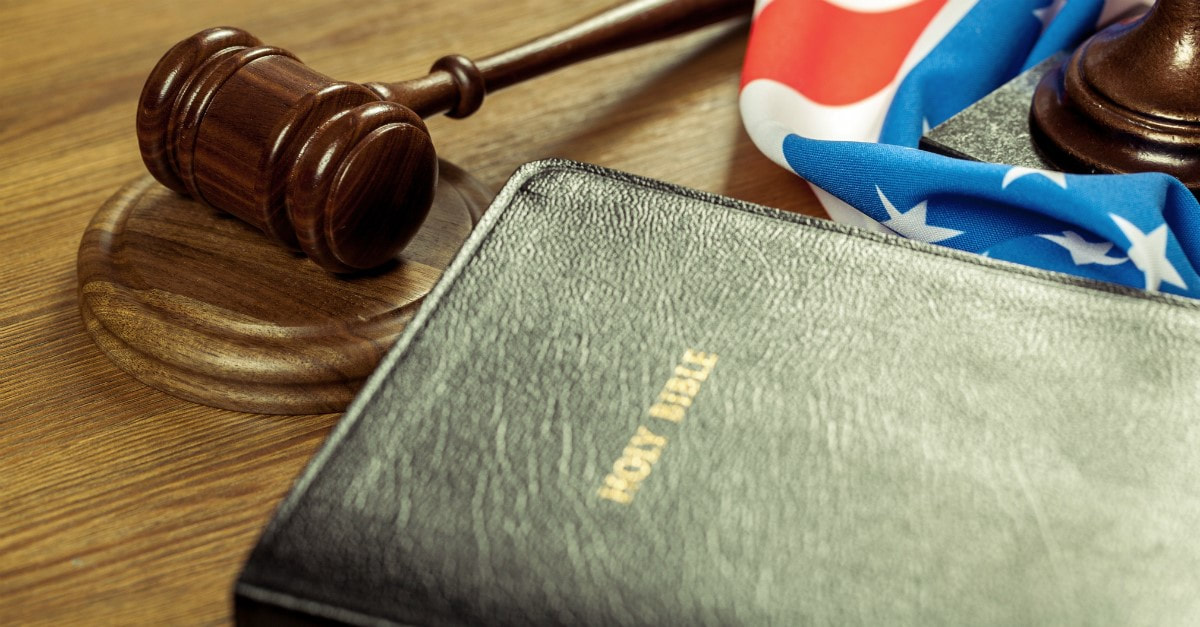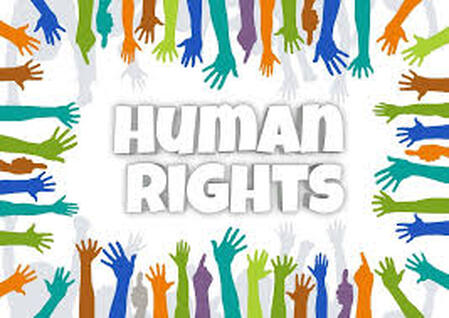“Your moral convictions are yours. I shouldn’t have to live by them.”
“Your religious beliefs shouldn’t be the law.”
“You shouldn’t try to legislate your morality.”
Do these comments sound familiar to you?
“You can’t legislate morality!” We often hear that but does it mean? Was the Roman Empire legislating morality when it abolished the bloody gladiator games, or was the British Empire wrong to outlaw slavery based on a Christian view of morality? Martin Luther King, Jr., opposed segregation because of biblical commands for equality. Were his efforts inappropriate?The fact that I consider a moral conviction to be God-inspired or self-evident doesn’t mean that I should force that conviction on someone else. And the fact that something is considered to be morally wrong in the Bible does not mean that it should be criminal.
How do we determine which Scriptural prohibitions should be legislated and which should not?
The answer isn’t as complicated as you might think. There are some key factors that we must consider when determining which biblical wrongs should be legal, and which shouldn’t.
Many Moral Wrongs in the Bible Aren’t Civil Wrongs
People often fail to note that there are many prohibitions in Scripture that Christians would never legislate today.
Adultery is a moral wrong, but I don’t know any religious people suggesting that it should be illegal—at least not in the Christian faith. Drunkenness, lying, gossip, and gluttony are also moral wrongs in Scripture that should not be criminalized.
But people also fail to note that there are many prohibitions in Scripture which nearly everyone, whether Christian or not, believes should be legislated.
Most religious and non-religious people agree with the eighth commandment that it is immoral to steal. Not only is it immoral—it should be criminal.
Most people agree with Scripture that rape and incest are morally wrong and these actions should be criminal.
Deuteronomy 22:25-27 ESV "But if in the open country a man meets a young woman who is betrothed, and the man seizes her and lies with her, then only the man who lay with her shall die. But you shall do nothing to the young woman; she has committed no offense punishable by death. For this case is like that of a man attacking and murdering his neighbor, because he met her in the open country, and though the betrothed young woman cried for help there was no one to rescue her.
Deuteronomy 27:22 ESV "'Cursed be anyone who lies with his sister, whether the daughter of his father or the daughter of his mother.' And all the people shall say, 'Amen.'
Most people agree with the sixth commandment that it is wrong to murder—and yet no one is accused of trying to “legislate morality” or a religious conviction when insisting that theft, rape, incest, and murder should be criminal. No one objects to these biblical bans being legislated.
Theft, rape, incest, and murder are all condemned in Scripture as moral wrongs, but they are condemned in society because they without question harm another human being. So, these moral wrongs must have a civil consequence, not just a personal one.
Adultery between consenting adults is a great moral wrong, and it does hurt many people, but it is not (in physical terms) a violation of another person’s human rights, unless injury is proven in court. So the consequences for this Scriptural prohibition must remain in the personal realm.
Likewise, lying, gossip, gluttony, and drunkenness are also condemned in the Bible, but they are not civil wrongs that threaten the life or liberty of another human being—so I don't know any Christians who believe these sinful behaviors should be criminal.
On the other hand, it is true (and should be) that if while committing these wrongs, you do injure another human being, it is then a criminal offense within our legal system, or a complaint taken up in court.
Christians are not and should not be trying to make every immoral action illegal.
Drunkenness, however, is a perfect example of a moral wrong according to Scripture that isn’t a civil wrong in and of itself—but it can become one. That happe6 when a drunk person gets behind the wheel of a car. A drunk driver threatens to assault another person with their vehicle and cause great bodily harm, even death. They threaten another human being’s right to life.
So, while it is morally wrong to be drunk according to Scripture, it is not a civil wrong until a drunk person decides to drive.
That is when a moral wrong becomes criminal: the moral wrong has become destructive to others. When an immoral action violates another person’s human rights, it is, in most cases, illegal.
Theft, rape, incest, and murder are also moral wrongs that violate another person’s human rights, and they are against the law.
Everyone agrees with these standards in Scripture.
Everyone wants to legislate these moral convictions.
No one is accused of “legislating morality” when it comes to these religious prohibitions. This is, at best, inconsistent.
It is obvious that the real objection isn’t to legislating biblical morality because society agrees to legislate many scriptural moral positions.
Aren’t We Already Legislating Morality?
The irony is that we are always legislating someone’s morality. The very idea of legislation requires a standard of right and wrong. It requires someone’s moral code. It requires someone, or rather a lot of elected someones, to say, “Here’s a line. It’s wrong to cross it—so don’t.”
In reality, it is difficult to identify any law that contains no moral component. Laws preventing animal cruelty or environmental destruction, for instance, derive from a sense of humanity’s moral interaction with other living things and natural resources. And does anyone seriously believe that laws preventing human sex trafficking are flawed because they are based on a moral ethos?Laws are motivated by a number of moral concerns, including the protection of life, liberty, and property. Frequently, advocates on both sides of a legal issue, such as capital punishment, support their positions with moral arguments. So the question is really not whether we should legislate morality, but whose morality we will legislate.This does not mean that simply obeying the law will make a person good. Even though most laws may restrain sinful acts, few sins are actually covered in the criminal code. The law does not criminalize coveting your neighbor’s property. Failing to honor our parents is not a crime. You can obey every single law in a society and still fall far short of living a sin-free life. Other forms of authority, religious authority (Christian and no Christian) shape those principles and convict sinners of the character traits the Creator expects of humans made in His image. Even atheists and agnostics have moral compasses that limit certain activities and actions.
That’s because laws are inherently moral. They are a statement of what a society considers to be correct or ethical behavior. You simply cannot escape legislating morality.
And yet, Christians are the only people criticized for “legislating morality.” This inconsistency begs a very important question:
Why is it more correct to legislate a secular morality than a God-centered morality?
It isn’t. It may be more politically correct, but it’s not more correct.
For the Christian when assessing moral issues that we should legislate, our focus should be on God’s design for government and our submission to authority.Government is one of at least three authorities God has instituted in society.
Parents
Parents are to raise their children according to moral principles.Proverbs 22:6 ESV Train up a child in the way he should go; even when he is old he will not depart from it.Children are to obey their parentsEphesians 6:1-4 ESV Children, obey your parents in the Lord, for this is right. "Honor your father and mother" (this is the first commandment with a promise), "that it may go well with you and that you may live long in the land." Fathers, do not provoke your children to anger, but bring them up in the discipline and instruction of the Lord.
Employers
Employers are to act fairly and godly toward employees.James 5:4 ESV Behold, the wages of the laborers who mowed your fields, which you kept back by fraud, are crying out against you, and the cries of the harvesters have reached the ears of the Lord of hosts. Masters, do the same to them, and stop your threatening, knowing that he who is both their Master and yours is in heaven, and that there is no partiality with him. Employees are to serve their employers respectfully and heartily
1 Peter 2:18 NLT You who are slaves must submit to your masters with all respect. Do what they tell you—not only if they are kind and reasonable, but even if they are cruel.
Colossians 3:23 ESV Whatever you do, work heartily, as for the Lord and not for men,
Government
God instituted principles of government.Genesis 1:26 ESV Then God said, "Let us make man in our image, after our likeness. And let them have dominion over the fish of the sea and over the birds of the heavens and over the livestock and over all the earth and over every creeping thing that creeps on the earth."Government’s role is to promote good.
Romans 13:1-7 ESV Let every person be subject to the governing authorities. For there is no authority except from God, and those that exist have been instituted by God. Therefore whoever resists the authorities resists what God has appointed, and those who resist will incur judgment. For rulers are not a terror to good conduct, but to bad. Would you have no fear of the one who is in authority? Then do what is good, and you will receive his approval, for he is God's servant for your good. But if you do wrong, be afraid, for he does not bear the sword in vain. For he is the servant of God, an avenger who carries out God's wrath on the wrongdoer. Therefore one must be in subjection, not only to avoid God's wrath but also for the sake of conscience. For because of this you also pay taxes, for the authorities are ministers of God, attending to this very thing. Pay to all what is owed to them: taxes to whom taxes are owed, revenue to whom revenue is owed, respect to whom respect is owed, honor to whom honor is owed.We obey God when we obey governmental authorities, because “the authorities that exist are appointed by God”. However, that does not mean we should comply with governmental actions that violate His commandments.Acts 4:19-20 ESVBut Peter and John answered them, "Whether it is right in the sight of God to listen to you rather than to God, you must judge, for we cannot but speak of what we have seen and heard."In these instances we must work within the law for change or accept government’s punishment of our faith.
1 Peter 3:17 ESV For it is better to suffer for doing good, if that should be God's will, than for doing evil.
To say that a nation’s laws must avoid any moral basis ignores centuries of laws spanning diverse religious and nonreligious cultures. More importantly, it is an impossible and anti-biblical standard. Even if a society rejects God’s authority, believers have an obligation to advocate God’s standards for civil government as revealed in the Bible.
“Should we legislate morality?” That’s the wrong question. We should ask, “What is the best way to promote God’s role for government and other authority?”


 RSS Feed
RSS Feed